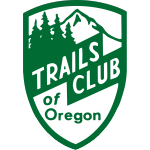Conservation Note for February
New Year’s greetings from your Conservation Committee!
This past year we have been so consumed by the pandemic, it took the west coast going up in flames this fall to remind us that climate change inexorably marches on, and threatens our lives and futures even more than Covid. These past four years have seen decades of progress in protection of our air, water, and
beautiful places reversed. Between 125-165 protective rules and polices have been rolled back. Some of this is irreversible, such as the dynamiting of the pristine and biodiverse Sonoran desert for the border wall, continuing even to the last day of this administration, but we can hope for much to be reinstated and hopefully new climate action progress soon. There is light at the end of the tunnel!
Below are some links to inform yourself.
The big picture: The young climate activist Greta Thunberg and the Dalai Lama recently launched 5 short films by climate scientists, less than 15 minutes each, on climate change feedback loops. They are well worth watching. If you cannot find time to watch them all, try to find time to watch the introduction and the forests film, the latter particularly relevant to Oregon and Washington.
Oregon: In Oregon, our greatest opportunity for mitigating climate change is in optimally
managing our forests for climate change. Two investigative reporters, Tony Schick of OPB and
Rob Davis of the Oregonian, along with ProPublica, authored a series of three articles on the
Timber industry in Oregon. Although the articles are controversial, they are well worth reading.
Forestry can be conducted in such a way that it improves forest health, ecological values, and climate change mitigation. Zena Forests and Hyla Woods are two examples of family forestry businesses that put forest health first, and forest income second, while still succeeding as businesses. There are two links below to talks by Ben Deumling of Zena Forests on Sustainable Forestry, the first under the auspices of Oregon Wild, the second as a Mazamas Conservation Committee webinar.
https://oregonwild.org/about/blog/webcast-sustainable-forestry-future
Using Natural Forest Resources Responsibly
https://mazamas.org/virtualmazamas/
(This will be posted later this month)
What can you do? Think globally, act locally, stay informed, be involved.
Nationally and globally: Consider becoming a member of one or two reliable non-profits whose causes are close to your heart to keep you informed. Organizations with lawyers who sue to protect the earth are especially effective, such as National Resources Defense Council, Center for Biological Diversity, League of Conservation Voters, and many others. And if it is the fate of the bugs, bees, and butterflies that is breaking your heart, consider Xerces Society, headquartered in Oregon. Make a New Year’s resolution to respond to a call for action once a month, once a year, whatever works for you, writing and calling legislators on crucial issues.
Locally: Again, consider signing up with a local non-profit or two with views congruent with your own. A prior conservation note had a list of some of our local organizations. Oregon Wild and Wild Salmon Center are intensely involved with issues and decisions involving Oregon forests and waters. There are many important decisions currently in the making regarding the OFPA, salvage logging, wildfire prevention strategies, and new appointments to the Oregon Board of
Forestry. Adding your voice can make a difference.
Your personal life: You are already demonstrating your value of our forests and mountains by being a member of TCO. Most of you likely already drive as little as possible, and use water and power responsibly. Most of you probably already source your food locally and organically as much as you can, not just for your own health, but for the health of the planet. Consider adding to this sourcing your wood products locally, from family forests with FSC certification. The Build
Local Alliance can help you find what you need. ( https://buildlocalalliance.org )
Stayed informed, stay safe, and do what you can, and a Happy and Healthy New Year to you all!
For the love of our forests, mountains, and streams,
Your Conservation Committee.
